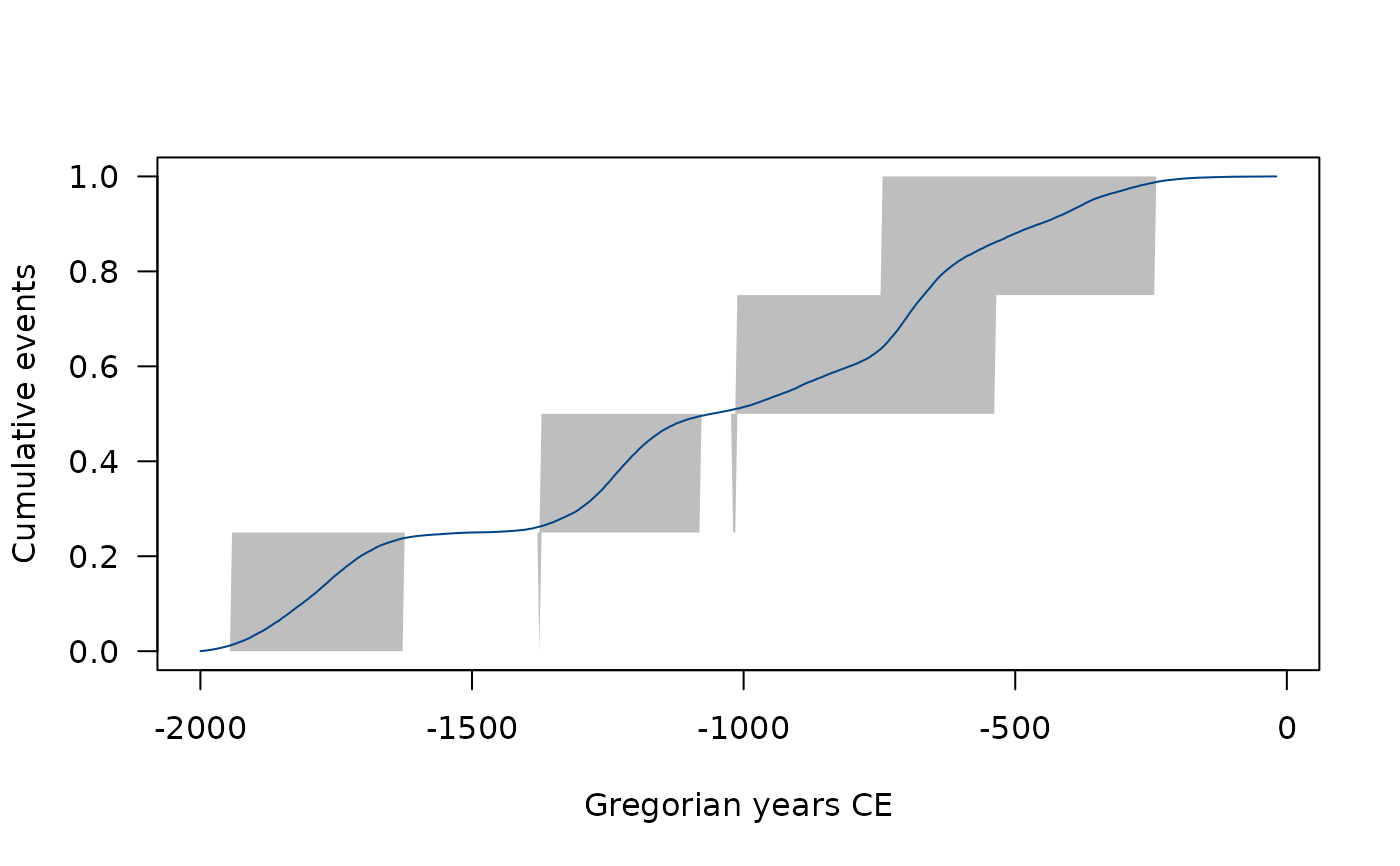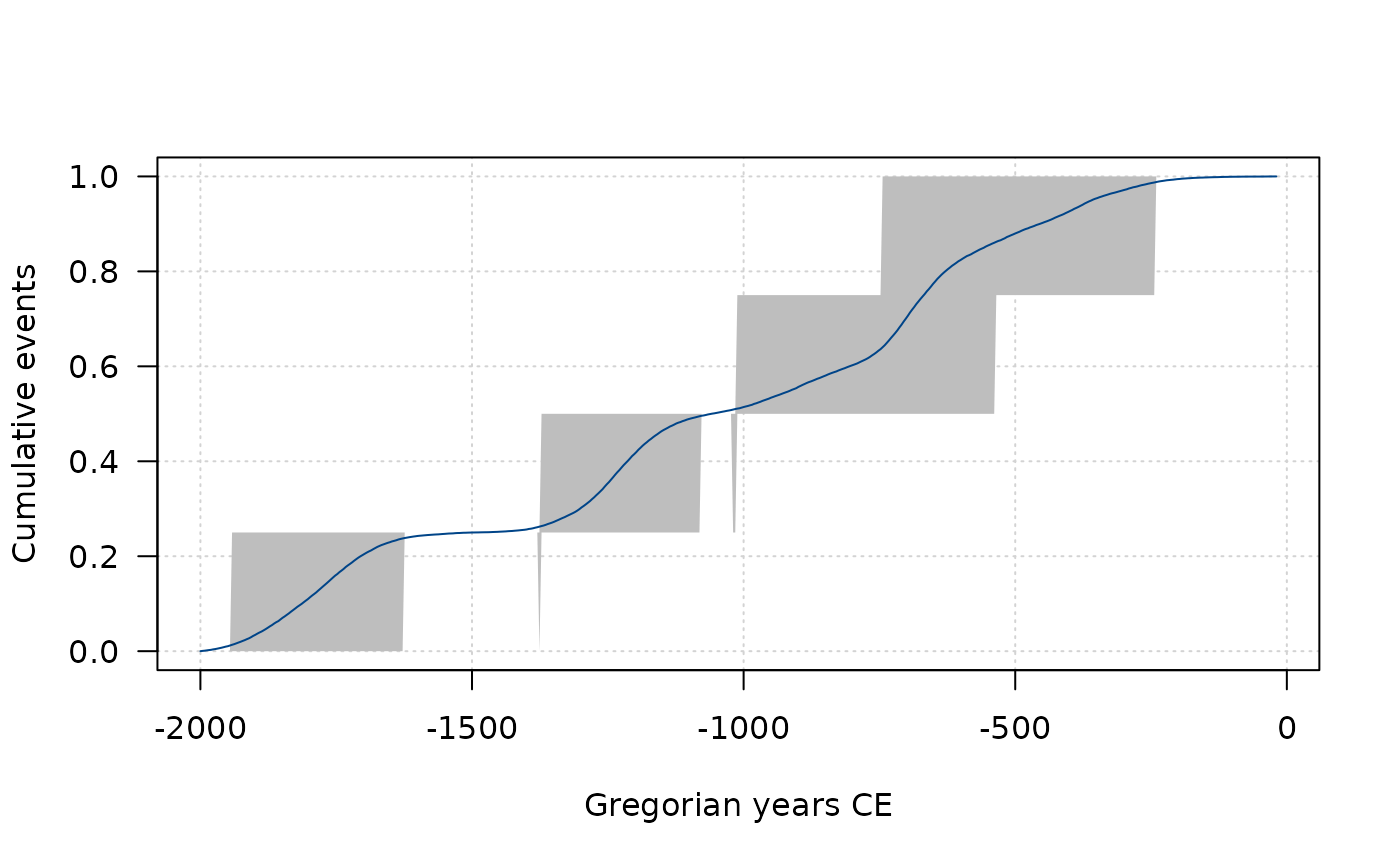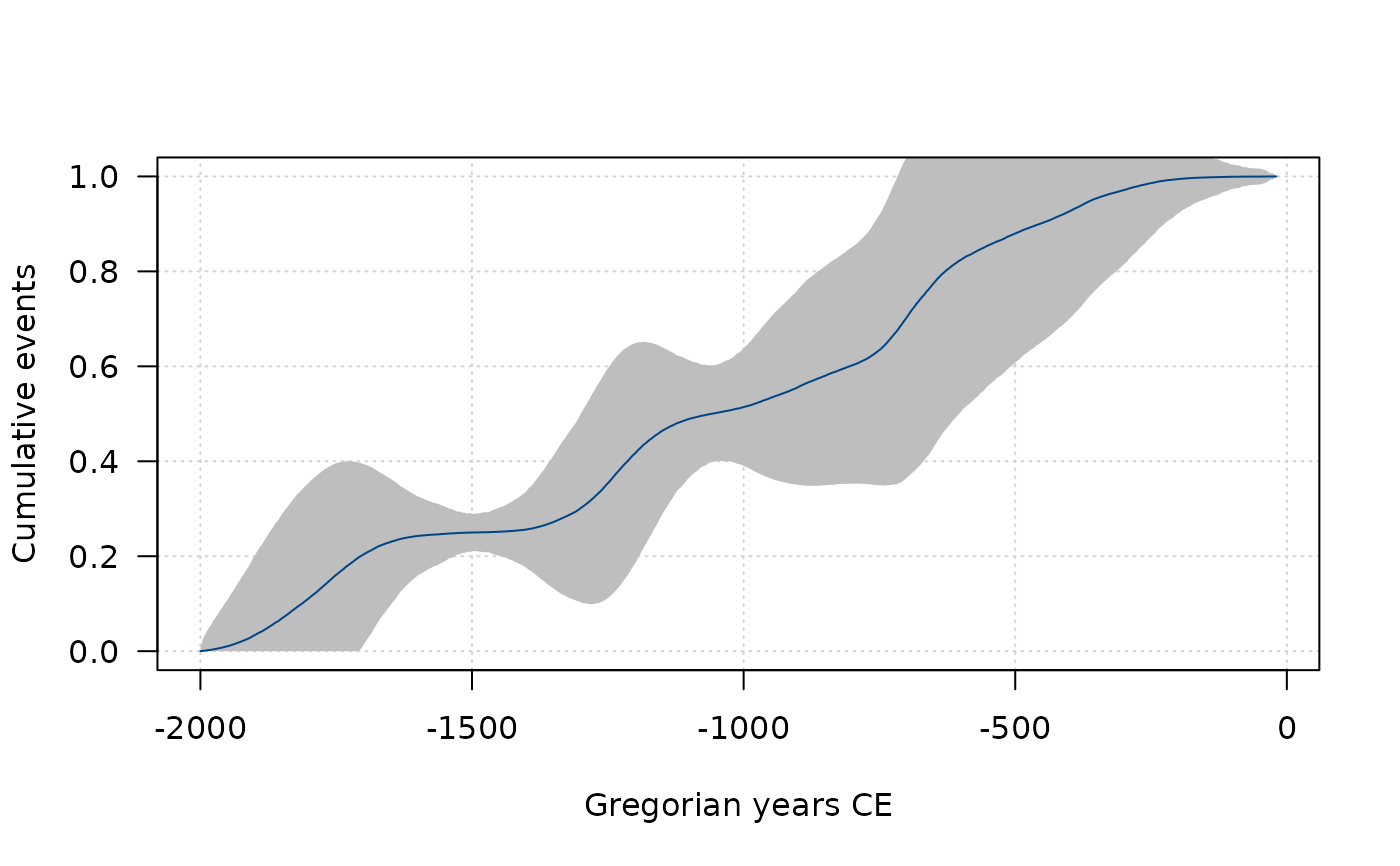Plots the first derivative of the tempo plot Bayesian estimate.
Usage
activity(object, ...)
# S4 method for class 'EventsMCMC'
activity(
object,
from = min(object),
to = max(object),
grid = getOption("ArchaeoPhases.grid")
)
# S4 method for class 'CumulativeEvents'
activity(object)
# S4 method for class 'ActivityEvents,missing'
plot(
x,
calendar = get_calendar(),
main = NULL,
sub = NULL,
ann = graphics::par("ann"),
axes = TRUE,
frame.plot = axes,
panel.first = NULL,
panel.last = NULL,
...
)Arguments
- object
An
EventsMCMCor aCumulativeEventsobject.- ...
Other graphical parameters may also be passed as arguments to this function, particularly,
border,col,lwdorlty.- from
A length-one
numericvector giving the earliest date to estimate for (expressed in rata die).- to
A length-one
numericvector giving the latest date to estimate for (expressed in rata die.- grid
A length-one
numericvector specifying the number of equally spaced points of the temporal grid.- x
An
ActivityEventsobject.- calendar
A
aion::TimeScaleobject specifying the target calendar (seeaion::calendar()).- main
A
characterstring giving a main title for the plot.- sub
A
characterstring giving a subtitle for the plot.- ann
A
logicalscalar: should the default annotation (title and x and y axis labels) appear on the plot?- axes
A
logicalscalar: should axes be drawn on the plot?- frame.plot
A
logicalscalar: should a box be drawn around the plot?- panel.first
An an
expressionto be evaluated after the plot axes are set up but before any plotting takes place. This can be useful for drawing background grids.- panel.last
An
expressionto be evaluated after plotting has taken place but before the axes, title and box are added.
Value
activity()returns anActivityEventsobject.plot()is called it for its side-effects: it results in a graphic being displayed (invisibly returnsx).
References
Dye, T. S. (2016). Long-term rhythms in the development of Hawaiian social stratification. Journal of Archaeological Science, 71: 1-9. doi:10.1016/j.jas.2016.05.006 .
See also
Other event tools:
elapse(),
occurrence(),
tempo()
Examples
## Coerce to MCMC
eve <- as_events(mcmc_events, calendar = CE(), iteration = 1)
eve <- eve[1:10000, ]
## Tempo plot
tmp <- tempo(eve)
plot(tmp, interval = "credible", panel.first = grid())
 plot(tmp, interval = "gauss", panel.first = grid())
plot(tmp, interval = "gauss", panel.first = grid())
 ## Activity plot
act <- activity(tmp)
plot(act, panel.first = grid())
## Activity plot
act <- activity(tmp)
plot(act, panel.first = grid())
